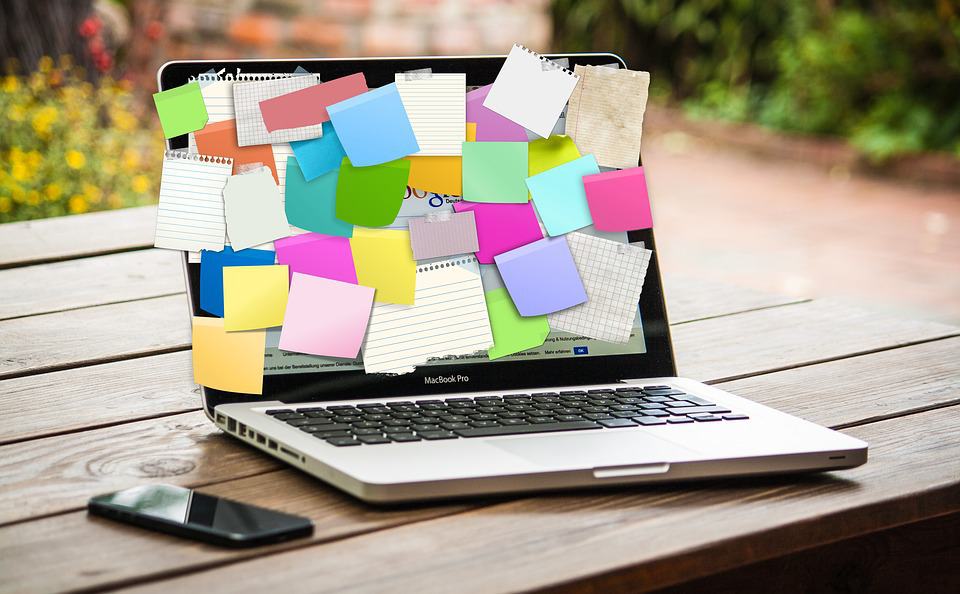If you want to successfully manage your remote work; you need to know the underlying rules of success. That is the etiquette of remote work – the habits and manners that you bring to bear on the task to deliver results that don’t drive your manager and colleagues crazy.
The good news is that remote work etiquette is quite straightforward and mainly common sense. Here, we’ve got 14 rules of remote work etiquette that will help you navigate your digital nomad life and remote working future.

Table of Contents
The 14 Rules Of Remote Work Etiquette
Rule 1: Examine Your Own Productivity

It’s a privilege to work remotely, it’s not a prison sentence. Sadly, many first-time remote workers treat it as though they’ve been shackled to their desks. They’re so worried that their boss will think they’re slacking that they try to do even more hours, without moving, at home.
That won’t work and it will cause burnout. It’s a good idea to start by planning your work; what do you need to produce today? Then think about when you work best, I’m writing this at 7 a.m. because I am a morning person, my partner’s fast asleep because she’s not a morning person.
Try, where possible to fit work into the times of day when you work best. Sure, there will always be meetings and distractions at other times, but work is best done when you feel good about doing it.
Also, take a look at how your workspace is set up – make it as comfortable as possible. Now, I appreciate that the digital nomads among us have less control over the environment than someone remote working from home, but you still have some control.
Use wrist wrests where appropriate, invest in decent headphones, stop relying on your laptop’s mousepad and buy an external mouse and mouse mat, that kind of thing. If your chair is adjustable, adjust it. That kind of thing.
Also, make time for breaks and ideally, make time for a 30-minute slot for exercise once a day, every day.
Rule 2: Focus On How You Behave In Meetings

If you’re in a meeting where everyone is present in a room; it’s easy to see who is paying attention and who isn’t. You can see where people are engaged and where they are losing the will to live as the guy from accounts drones on about something irrelevant.
You can’t do this when the meeting is online, at least not without video, and while large meetings with video are something of a nightmare – you can insist that video is used for smaller meetings and you should.
Then you need to make sure you dress appropriately for your meetings. You don’t have to wear a tie but clothes are quite important and clothes that don’t look like you’ve been collecting bits of your breakfast on them for the last week too.
Don’t forget that the video is on, either. That means don’t work on other things while the meeting is running. Pay attention.
It is best not to mix real-life meetings and remote meetings. They should be all or nothing. So, it’s better to put people separately on video lines than to put 8 people in a room and then add 2 people on video calls.
You put the meeting attendants in separate spaces to cut down the background noise on the call.
Rule 3: Consider Communication (Writing Stuff Down Is Essential)

You’re not wandering around the office passing things backward and forward anymore. You have to think about how to make communication clear even when you can’t see someone’s face.
That means you need to write things down and you need to write more down than you normally would have done in an office environment.
This rule feels contrary to normal work etiquette where we are constantly told to stop sending a million e-mails and talk to other people, but it is essential.
Things we’d encourage you to pay attention to are:
- Sharing your ideas in writing
- Clarifying action points in writing
- Making and sharing notes of meetings
We’re sad to say that this is also a bit of a backside covering exercise. Nobody can deny what was said if you write it down.
When I make meeting notes, for example, I always add a line that asks people to get in touch within 24 hours if they think I’ve made a mistake or misrepresented anything that was agreed and that after that, the notes will act as a record of what’s expected from all parties.
When you share the notes with everyone at the meeting; nobody can say “you never said XYZ” or “I didn’t know that would happen…”
You can investigate collaborative working tools if you work together in virtual teams a lot. A virtual whiteboard can be a good way to facilitate a large meeting online, for example, and get everyone’s thoughts clear before the end of the call.
You should also talk about how you feel. Point out what’s going well when it is but when things aren’t going so well, you need to speak up too. When people can’t see you slumped over your keyboard, it’s hard for them to figure out things aren’t OK.
Rule 4: Keep Work And “Real Life” Separate

I break this rule, occasionally. We’re digital nomads and sometimes it’s more convenient to rent a room in advance than an apartment but our relationship suffers every time that I do break this rule.
Even when you work in an office, it can be hard to put work down at the end of the day and go out and play without mulling it over. When you work from home and you put your desk in your bedroom, you soon find that there is no space between work and your life.
It’s an awful feeling. You end up constantly checking work stuff, never relaxing, and going slightly mad.
The best thing you can do is create physical separation from your personal life. That means another room in which you work, not your bedroom or your lounge. If you can’t find another room – you might want to choose a coffee shop or a co-working space.
You also need to delineate work time from personal time and stick to it. Communicate these time boundaries clearly. E.g. send an e-mail to your team saying; “Hi guys, I am online and ready to help from 9 a.m. to 6 p.m. every day but don’t check my e-mail before or after those hours. If there is something really urgent, please call me otherwise I will get back to you as soon as I am online.”
Finally, develop a “switch off” mentality when you’re out of work times. Whenever possible disconnect your devices from being online and ideally, switch them off and go outside. You’re a digital nomad, right? Go see the world. You’ll feel better for it.
Some people develop an “end of day routine”. They pop on some slippers or even leave the home and then come back in. I wouldn’t go that far but if it helps you, go for it. This is your life and not mine.
Rule 5: Plan Your Spare Time

You’re going to hear a lot about how lonely it can be as a digital nomad or a remote worker and while it is true that you can be lonely, you also don’t have to be.
You have to create space in your life for other people and if you’re somewhere that you don’t know any other people, you have to fill that space too.
Put time in your diary at least 2 or 3 times a week to go out and be social. I tend to go to the pub with Megan but you can do whatever makes you feel good, join a club (Meetup.com and Facebook have plenty of ideas for this), go to the opera, visit a museum, etc. and interact with other people.
I recommend you read; “How to win friends and influence people” if you don’t know how to interact well with strangers.
Though I can reduce it to; “Learn to say hello (which is easy if you ask a question as part of your greeting), take a sincere interest in the other person (you have to care about someone else in order for them to care about you in most circumstances), ask questions and really listen to the answers a lot more than you talk about yourself, and if somebody’s clearly not looking for company, leave them alone.”
Now, you’re fully armed and ready to go out and tackle the joys of socializing. You can’t live without this – humans are a social species. If you don’t connect with others, you are going to end up depressed and anxious and miserable.
Rule 6: Ensure That You’re Visible With The Work Team

Years ago, I worked in a busy office, the noise was not conducive to work. So, I moved into another room and got the job done. I delivered 6 weeks’ work in just under 2 weeks. It was a good call for my productivity.
Sadly, it was a bad call for my relationship with my boss. He felt that I wasn’t visible enough and moaned for a month after.
Being visible when you work in an office is easy. Show up and people will see you. You bump into other people in the organization organically and get to chat to them.
The trouble is that when you work remotely, you are, by definition, invisible. There are no elevators to pitch your ideas in. No water coolers to collide with colleagues at.
That means you need to make some effort to get noticed and we’ve got some great tips for that:
- Always make sure your manager knows what you’re working on – we’d suggest that you send them a quick two-line update twice a day (once at the start, once after lunch)
- Always make sure your team knows what you’re working on – updates or put it in your status on Skype, Slack, or whatever
- Always respond as quickly as is reasonable to any e-mails, messages, etc. within office hours
- Always be visible in your Instant Messaging and Project Communication tools – participate in discussions when needed and ensure you’re marked as “online and working” when you can
- Always let others know about your successes and invite them to celebrate them
- Always check in to make sure that others know you’re there to help and to make certain that they’ve been getting what they expect and need from you
Rule 7: Forge Connections With Your Teammates

In the office we easily connect with the people around us, we have to – they’re there and so are we. This can be harder when working remotely but you have to get it done. If not, you can feel isolated at work and even threatened by your team.
So, you need to make an effort to connect and we’d suggest:
- Get into meetings early – this gives you time to talk to other early arrivals about how they are, what they’re doing, what they’re working on, the weekend, etc. small talk is an essential function of relationship building
- Set aside time for “get to know each other” meetings – there is nothing wrong with booking 20 minutes with another team member to better understand them. What do they need from you at work? What do you need from them? What are their preferred work methods, what are yours? Share ideas and information and you are building a platform for successful cooperation.
- Try to make individual calls over video – we are programmed, biologically, to react better to human faces than to voices. It’s easier to bond with someone when we get the visual cues that show they are being congruent (that is their thoughts, words and deeds match). You’ll find it easier to bond with your team when you can see them and vice-versa.
Rule 8: Always Conduct A Project Review When Work Finishes

These tend to happen without thought when everyone’s in the same space. Even if there’s no official dissection of a project, the team members are likely to talk through the highlights and pitfalls over lunch or at the water cooler.
In remote working, you have to create space for these discussions. The idea is not to apportion blame for mistakes but rather to discuss the lessons everyone has learned and to share them so that the next project is easier and isn’t repeating the mistakes of the past.
Our process for this is simple:
- Send out meeting invites to everyone who was involved – explain that you’d like to hold a project review, explain that you’d like everyone to contribute and ask them to bring their top 3 learning points from the project
- Allow some time for free discussion – while it’s useful to hear people’s points without interrupting them, it’s also useful to talk about them after
- Make plenty of notes – then share them when the meeting is done, give people a substantive map of what everyone learned and understood and the opportunity to correct any mistakes in the notes too
This process only works when people are free to explain they made mistakes and that they are learning from them. There should be no tone of judgment or blame anywhere in the process or notes.
Honesty mixed with kindness turns a project review into something valuable. Anything else and it’s a recipe for unhappy teams.
Rule 9: Learn To Hold Yourself Accountable

The biggest risk facing most remote workers and digital nomads is a lack of accountability. In an office, there’s always someone watching you – you might get away with a few minutes of slacking off in a day but if you’re always doing nothing, you’ll be caught and reprimanded quick smart.
This doesn’t happen when you’re working a million miles away from your boss. You can surf the net. Play computer games. Go for a walk. Go shopping. Play with the dog. Call your mates. And so on…
Except, of course, you can’t not if you want to keep your job. If you want to stay working remotely – you need to be accountable for things that you say you will do.
Fortunately, there are some fairly simple ways to build accountability into your life too:
- Always plan your time – that means write down your tasks and see how they fit into your time, this is a useful trick not just to make yourself accountable but it can also help you see when you have too much on your plate and then it makes it easy to show your boss why you have too much on your plate and for them to help you clear it
- Use an electronic diary to map deadlines – make this visible to your team and your boss, they ought to know that you’re working and have stuff to do. It also helps them know that you’re in control of what you have to do too
- Share plans in Slack or Trello or whatever system you use – yes, share your plans twice, this way nobody can say that they haven’t seen them, and you have the maximum amount of invisible peer pressure to get stuff done
We also like to use a twice-daily update system when working like this. Send everyone a quick note about what you worked on in the last half-day and what you’re going to be working on moving forward. It shouldn’t be a long note, but it should be enough to keep you focused and everyone else informed.
Rule 10: Your Health Is Important

There is no good reason that remote working should negatively impact your physical or mental health but sadly, it often does. This is because it’s all too easy to fall into bad habits when there’s no-one else around us.
Yet, if you pay attention to your health – life is always going to better and not just your work life but also your personal life.
Our tips for taking care of your health when working remotely include:
- 30 minutes of exercise every day – this doesn’t need to be hardcore, a brisk walk will do – but get out of the house and go and do something for your body
- Eat healthily – you can plan your meals better at home than in an office, there’s no excuse for eating garbage all the time. Schedule time for, not just eating, but also for shopping for food and preparing it and then stick to your plan
- Drink water – staying hydrated is important and yes, anything water-based counts as water – there’s no less water in Coca-Cola though Coca-Cola is full of sugar which is bad for you, we stick to black coffee, Coke Zero and water none of which have any sugar at all
- Take regular breaks – you need a quick break at least once an hour, 5 minutes of wandering about, stretching and feeling human again
- Get out into nature – if a digital nomad can’t get out into nature, they’re doing it wrong, you’re free to work anywhere, pick somewhere with access to a bit of green, there is a huge body of evidence that seeing nature makes us feel less stressed and happier
- Meditate – this isn’t spiritualist mumbo-jumbo, the practice simply helps you clear your mind of distractions and feel calmer, it’s very easy to learn and completely free to practice, there’s no excuse for not, at least, trying it
Taking care of yourself means holding yourself accountable to live better. You don’t have to give up pizza and go vegan but taking account of your life early will avoid health problems later on.
Rule 11: Make Sure Everyone’s Responsibilities Are Clearly Understood

In an office, it’s always fairly clear who does what and when. In remote teams, it’s much harder for you to know these things because there’s no-one who automatically catches the slack and runs with fixing it.
This really boils down to more written communication so that everyone feels comfortable with what needs to be done. So here’s what to do:
- Define responsibilities – that is who, what, where, when and why and sometimes the how too – the more information you can generate the clearer what’s needed from someone becomes
- Write them down – get used to the idea that when working remotely if it isn’t written down, it did not happen
- Share them – and get feedback – you need to know that people agree and are onboard and to answer any questions they have about their roles
That’s it, really, when you bottom this stuff out – it makes working together much easier.
Rule 12: Make Sure You Understand Your Own Work Goals

Becoming a remote worker doesn’t free you from being in a career, you’re still going to have aims and objectives for your work life, but now – you’re going to have to take strong control over them.
That’s because in an office, opportunities for growth and advancement pop up all the time – you can quickly jump on something that might help build your profile. When you don’t have these opportunities in front of your face, you have to work to make them.
Write down what’s important to you, where you want your career to go in the short-term and the long-term and revisit this on a regular basis. Your objective is not just to have goals but to fully understand them so that you can then work on making them happen.
Make sure to talk to your manager about your goals and ask for their feedback and support on helping you achieve those goals. You need to be very pro-active on your own behalf when working remotely or it’s very easy for people to forget about you when making the important decisions on promotions, training and pay rises.
Rule 13: Tackle Conflict When It Arises

We talked earlier about avoiding conflict, sadly there’s no getting around the fact that even with the best intentions and management sometimes, things don’t go the way we want them to.
Remote work feuds are even worse than feuds in an office. That’s because people tend to be shy about communicating their feelings in writing, that is until they’ve lost control of them.
When conflict arises, it has to be dealt with immediately or a remote team can tear itself apart.
It is best to meet, use video call, with the offended party and with a mediator present (so that things don’t get out of hand). You need to determine what they feel is the cause of the problem and what you can do to help make things right.
You don’t need to be a doormat but understanding the problem from the other person’s point of view can really help to solve it.
If necessary, ask for time to think about things before responding, don’t escalate the emotional fallout – try to calm things down and fix the problem.
In extreme cases, you may need to ask a manager to intervene, get them to step in early before things go too far.
Rule 14: Eliminate Distractions

Finally, the golden rule of working outside of the office is to try and ensure that there are as few distractions as possible.
If you share a home with someone explain that when you’re working, you’re working and you’re not free for casual chats. If you’ve got pets – move them somewhere else.
This isn’t really rocket science, but each moment of distraction can cause us to lose up to 15 minutes of productivity while we try to get back into the groove. It is better to seal yourself away like a hermit and get work done so that you can give everything else your full attention later than to constantly get interrupted.
Conclusion

So, there you have it 14 rules for remote work etiquette and none of them are that hard to get to grips with are they? However, it is important that you implement them and use them to ensure that your remote work career stays on track and that your digital nomad life goes as you had planned it to.
